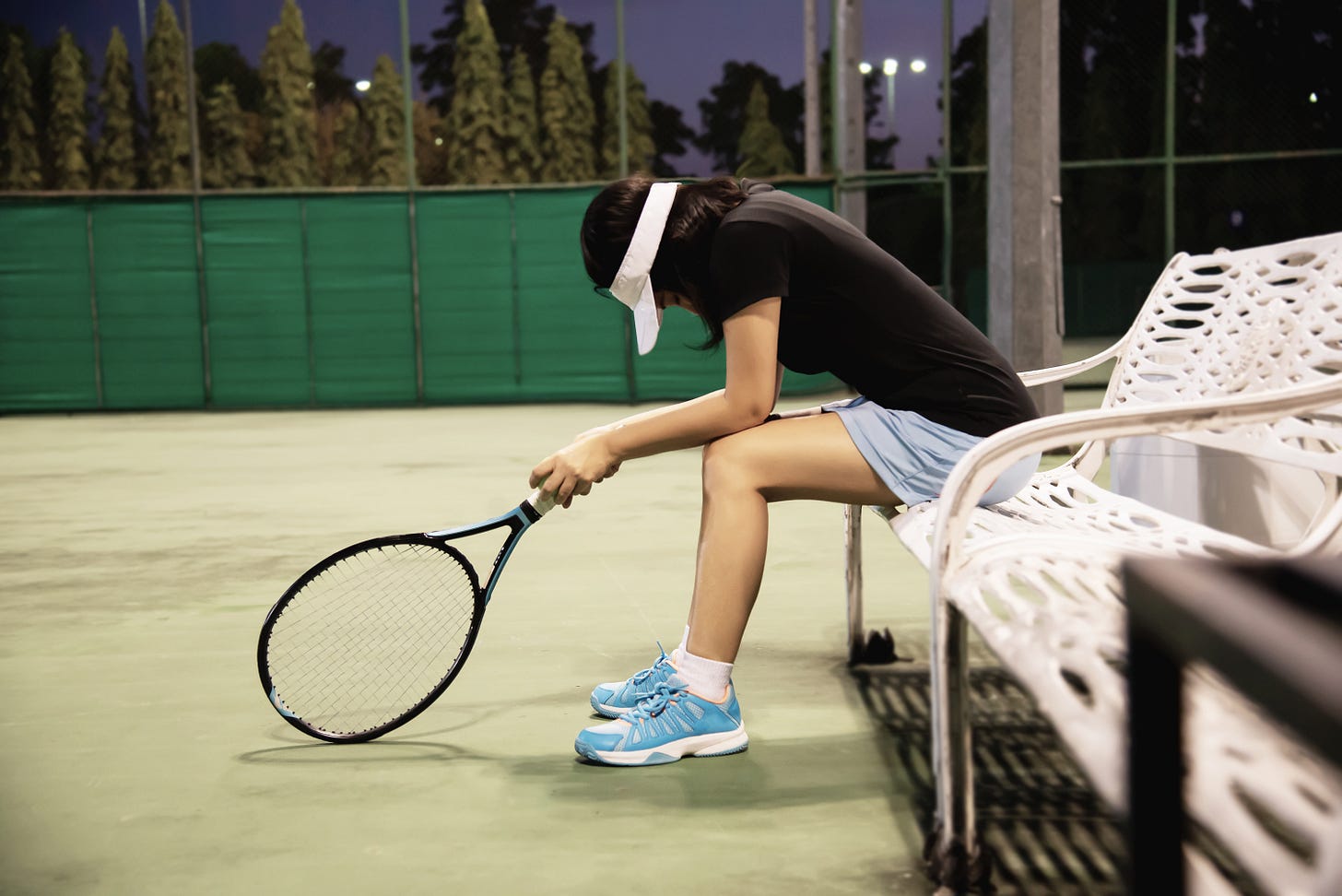Make them later
A group of us were recently discussing making errors at the beginning of a tennis match with our tennis coach. We were talking about how despondent we were.
Our coach responded, “You have to miss to know that you’ll make them later.” Meaning that it’s okay to make mistakes at the beginning of the match if you make the shots when it counts at the end of each set, and in the last game of the match.
Not only was I frustrated at making errors, but I was frustrated if I didn’t hit “in” balls perfectly.
If the sound of the ball wasn’t crisp, or if I hit a shank-you-very-much shot, my shoulders would slump. (This is why you might see players apologize for hitting a winning shot that hits the net and dribbles over. It’s because they didn’t intend to hit an “imperfect” net-dribble shot, and it’s somehow “unfair”.)
I was disappointed, because I know I can make a better shot. I’ve done it before. My coach reminded me that we’ll all make mistakes. It’s part of the game. It’s part of life.
But when it’s all on the line, it’s better to have made the mistakes before than to falter when it counts.
If your goal is to just “push the ball back,” as we say in tennis, you don’t want to make any mistakes. You just retrieve the ball with no pace, no spin.
A pusher’s intention is to outlast the opponent, because the opponent will get impatient and start making errors. The pusher doesn’t play to win, but not to lose.
If you switch it up on a pusher, though, and do something unexpected, the pusher will get flummoxed and start making mistakes.
The pusher doesn’t know how to turn around a spiral of mistakes, because the pusher hardly ever makes them.
What’s a better feeling? “Wow, what a match, I didn’t lose.” Or “Wow, what a match — I won!”
Your life errors prepare you for something else. Living to just “push” back what life throws at you prepares you for not winning. Do you thrive at not taking chances and receiving little rewards?
If you’re not thriving with that mindset, think about what you might be doing to commit no errors, or what you have stopped doing because you were making them.
If you want to thrive, switch it up. Know that it’s not about not making mistakes. It’s knowing you will, and what you do with them when you do. You go to the next level with errors, while winning games, sets, and matches along the way.

